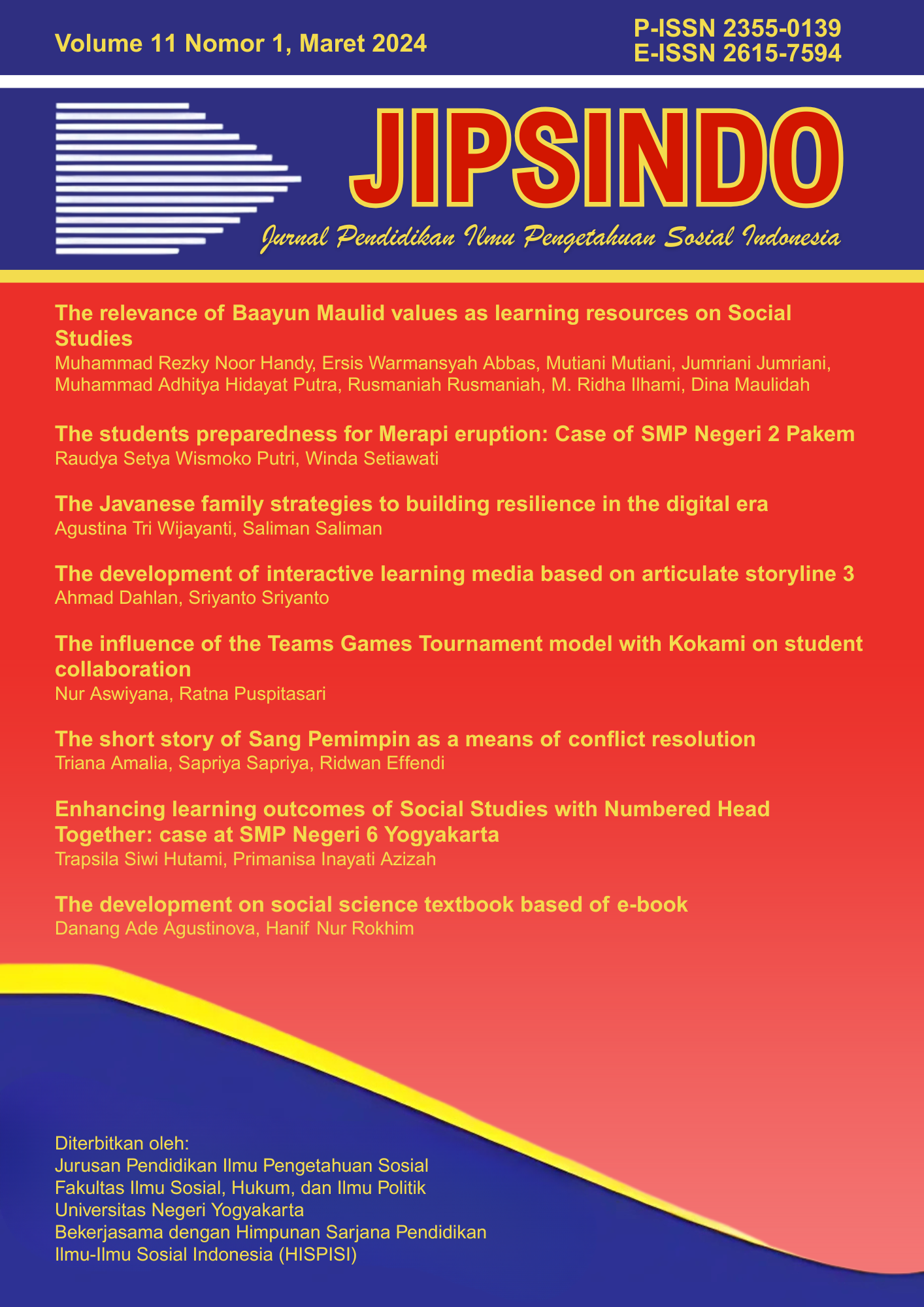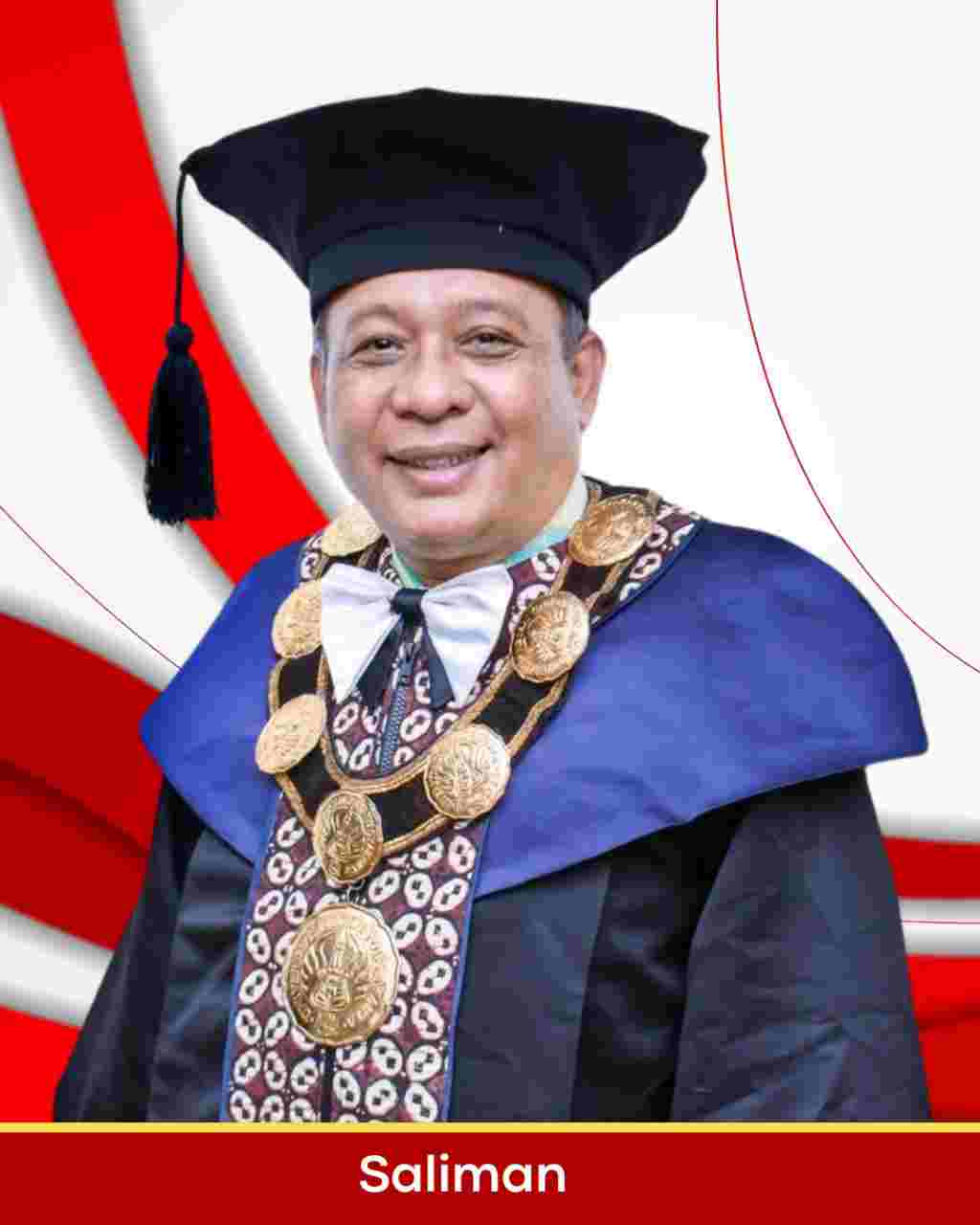Analisis anak putus sekolah tingkat SMP di Desa Lemoh Timur
DOI:
https://doi.org/10.21831/jipsindo.v8i2.42659Keywords:
anak putus sekolah, faktor penyebab, upaya mengatasiAbstract
Tujuan penelitian ini adalah untuk 1) menganalisis dan mendeskripsikan faktor penyebab anak putus sekolah tingkat SMP di Desa Lemoh Timur 2) menemukan upaya pencegahan terjadinya anak putus sekolah di Desa Lemoh Timur Kecamatan Tombariri Timur Kabupaten Minahasa. Penelitian ini menggunakan pendekatan kualitatif. Teknik pengambilan informan dengan menggunakan purposive sampling dan teknik pengumpulan data dengan observasi, wawancara dan dokumentasi sedangkan analisis data yang digunakan yaitu analisis interaktif dari Miles dan Huberman. Hasil penelitian menunjukan bahwa faktor penyebab anak putus sekolah di Desa Lemoh Timur Kecamatan Tombariri Timur Kabupaten Minahasa adalah faktor keadaan ekonomi orang tua yang rendah, kurangnya pengawasan orang tua, serta kondisi orang tua cerai atau pisah. Upaya yang dilakukan untuk mencegah terjadinya anak putus sekolah yaitu orang tua berupaya melakukan pengawasan terhadap pendidikan anak dan upaya guru adalah dengan mengidentifikasi anak yang kurang mampu dan didaftarkan pada bantuan pendidikan seperti Kartu Indonesia Pintar (KIP)
The analysis of dropouts of junior high schools in Lemoh Timur
The purpose of this study is to 1) analyze and describe the factors that cause children to drop out of junior high school in Lemoh Timur Village 2) find efforts to prevent school dropouts in Lemoh Timur Village, Tombariri Timur District, Minahasa Regency. This study uses a qualitative approach. Informant retrieval technique using purposive sampling and data collection techniques by observation, interviews and documentation while the data analysis used is an interactive analysis of Miles and Huberman. The results showed that the factors causing children to drop out of school in Lemoh Timur Village, Tombariri Timur District, Minahasa Regency were factors in the low economic condition of parents, lack of parental supervision, and the condition of divorced or separated parents. Efforts are made to prevent children dropping out of school, namely parents trying to supervise children's education and teacher efforts are to identify underprivileged children and register them for educational assistance such as the Smart Indonesia Card (Kartu Indonesia Pintar).
References
Afrizal. (2014). Pendekatan penelitian kualitatif: sebuah upaya mendukung penggunaan penelitian kualitatif dalam berbagai disiplin ilmu. PT Grafindo Persada.
Aristin, N. F. (2015). Faktor-faktor yang berpengaruh terhadap anak putus sekolah tingkat sekolah menengah pertama (SMP) di Kecamatan Bondowoso. Jurnal Pendidikan Geografi, 20(1), 30–36. https://doi.org/10.1136/bmj.2.2017.513
Baharuddin, H. (2016). Psikologi Pendidikan Refleksi Teoretis terhadap Fenomena. AR-RUZZ MEDIA.
Mahmud, D. (2017). Psikologi pendidikan. C.V Andi Offset.
Mudyahardjo, R. (2016). Pengantar pendidikan sebuah studi awal tentang dasar-dasar pendidikan pada umumnya dan pendidikan di indonesia. PT RajaGrafindo Persada.
Ridwan, R., Irawaty, I., & Momo, A. H. (2020). Faktor penyebab anak putus sekolah (studi di desa mapila kecamatan kabaena utara kabupaten bombana). Selami IPS, 12(1), 482-491. https://doi.org/10.36709/selami.v12i1.10838
Roy K. & Widayati P. (2015). Studi Kasus Tentang Anak Putus Sekolah Di Kecamatan Moutong. Jurnal Universitas Tadulako, 3(2), 1–12.
Santrock. (2003). Adolescence Perkembangan Remaja, Erlangga
Syafaruddin, S. (2008). Efektivitas kebijakan pendidikan: konsep, strategi dan aplikasi kebijakan menuju organisasi sekolah efektif. Rineka Cipta.
Wassahua, S. (2016). Analisis faktor-faktor penyebab anak putus sekolah di kampung wara negeri hative kecil kota ambon. Jurnal Al - Iltizam, 1(2), 93–113. https://jurnal.iainambon.ac.id/index.php/ALT/article/view/199/154
Downloads
Published
How to Cite
Issue
Section
License
Authors who publish with this journal agree to the following terms:
- Authors retain copyright and grant the journal right of first publication with the work simultaneously licensed under a Creative Commons Attribution License that allows others to share the work with an acknowledgement of the work's authorship and initial publication in this journal.
- Authors are able to enter into separate, additional contractual arrangements for the non-exclusive distribution of the journal's published version of the work (e.g., post it to an institutional repository or publish it in a book), with an acknowledgement of its initial publication in this journal.
- Authors are permitted and encouraged to post their work online (e.g., in institutional repositories or on their website) prior to and during the submission process, as it can lead to productive exchanges, as well as earlier and greater citation of published work (See The Effect of Open Access).

JIPSINDO (Jurnal Pendidikan Ilmu Pengetahuan Sosial Indonesia) is licensed under a Creative Commons Attribution-ShareAlike 4.0 International License.
Based on a work at https://journal.uny.ac.id/index.php/jipsindo.













